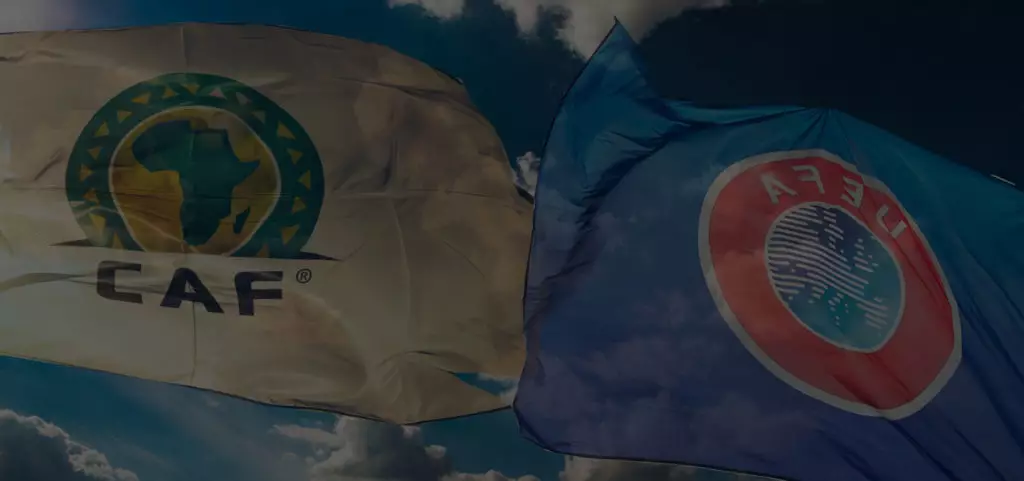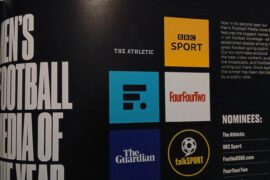After a false start, the Confederation of African Football (CAF) Super League is slated to start in October this year on a date yet to be confirmed.
It will be CAF’s third club competition, and arguably the Confederation’s crown jewel. It won’t be a knockout competition like the other two – the CAF Champions League and CAF Confederation Cup. Instead, the new offering will follow the traditional league format; one group of teams playing home and away fixtures.
So, theoretically the CAF Champions League will retain its status as the continent’s premier club knockout competition. But for how long?
Product appeal
To be honest, to suggest that Africa has ‘embraced’ the proposed competition is to overstate. There has been a noticeable absence of public debate on the proposal; no real excitement, no discernible opposition to the idea either, just indifference.
It’s a very ambitious project, but is Africa ready for it? Those superintending the African game obviously think so.
To add to the intrigue, the current CAF president is also the owner of one of the clubs that will be taking part in the new competition. So there is no shortage of vested interest and determination to see that the competition takes off.
FIFA endorsement
The launch of a CAF Super League enjoys the support of world football’s governing body. FIFA president Gianni Infantino is an avid cheerleader.
Hang on a minute! The same Infantino who condemned the European Super League (ESL) as a disagreeable proposal at odds with the spirit of the game?
How can Infantino endorse a project for Africa that he strongly disapproves of for Europe? Hypocrisy? FIFA double standards?
It’s tempting to conclude that Infantino’s support of the African project gives credence to claims by Barcelona president Joan Laporta that the FIFA boss secretly encouraged the formation of the European Super League only to make an about turn and publicly express his disapproval in the face of a groundswell of criticism.
CAF Super League vs ESL
What if the inferences about FIFA double standards are steeped in false equivalence, observers comparing grapefruit with oranges?
The European Super League proposal had the look of secession, a group of ambitious clubs separating themselves from the herd, but still submitting themselves to UEFA authority for UEFA competitions.
Small wonder UEFA gave the ESL proposal short shrift and reacted with the fury normally associated with governments when putting down rebellions by malcontents.
The idea of the ESL fishing in the same European pond with UEFA’s other competitions was a non-starter. UEFA, determined to safeguard the future of its competitions, clamped down on the rebels.
No such concerns for the CAF Super League, not least because there are significant differences between the African and European projects.
Perhaps the biggest difference is ownership. While the African Super League is a CAF project, the proposed European ‘equivalent’ was to be a breakaway, an elite group of clubs striking out on their own to form an autonomous league with its own rules.
It’s easy to see why the ESL proposal got the hackles up UEFA and FIFA’s backs. A European football competition outside the auspices of UEFA is an existential threat to UEFA club competitions.
The CAF Super League on the other hand was instigated by CAF. Clubs participate at the invitation of the continent’s football governing body. The competition is an extra string on CAF’s banjo.
The other key difference is that there is no suggestion those invited to participate in the African project will be permanent members. By comparison, the ESL would have been a formation of permanent founding members with special guests from time to time.
The participants
The participants in the inaugural instalment are clubs with storied football histories on the African continent.
Reigning CAF Champions League champions Al Ahly (Egypt) lead the line-up which includes Petro de Luanda (Angola), TP Mazembe (DR Congo), Horoya (Guinea), Wydad Atheltic Club (Morocco) Simba SC (Tanzania) and Esperance de Tunis (Tunisia). Mamelodi Sundowns, owned by CAF president and SA billionaire Patrice Motsepe, complete the inaugural roster.
South African giants Kaizer Chiefs and Orlando Pirates, Zamalek (Egypt) and Raja Casablanca (Morocco) are among the notable big-name omissions.
The initial 24-team competition would have seen each participating club receive $1m, while the prize money was pegged at $100m. It is not clear how the cake will be sliced after the number of clubs was reduced to eight.
Like the European Super League had it been allowed to see the light of day, the fear is that CAF’s new project will widen the gap between the haves and have-nots in African club football.
No ESL vibes here
CAF is keen to steer clear of anything that inspires comparison with the European Super League, a most reviled project widely rejected by many of the game’s stakeholders as anti-football. It is an unwanted association. That concern could necessitate a name change for the African project.
Because ‘Super League’ invites comparison with the European namesake, sponsors are reportedly trying to persuade CAF to reconsider a name change. They are loathe to be associated with a name that inspires negative sentiment.
The Challenges
Africa is a vast continent. A continental league with clubs playing in the traditional home and away format would require quite considerable travel and resources. It is not surprising that the original list of 24 clubs has been whittled down to eight for the inaugural campaign.
Effectively, participating clubs will be playing in two leagues concurrently, domestic and continental. Such a development is set to impact domestic schedules and other CAF competitions. There is the real prospect that Super League participants will struggle to fulfil their other fixture obligations, especially if they are also involved in other continental and domestic cup competitions.
CAF Super League clubs will also need to bolster their squads considerably to cope with increased workloads or risk player burnout.
It will be interesting to see how the idea fares and whether the start date will be pushed back, again. Another delay can’t be ruled out given the magnitude of the project and the attendant logistical challenges.
Will Africa succeed where Europe failed?
The formation of the CAF Super League is an extremely ambitious undertaking. It could prove a massive boon for the continued development of the game in Africa where there is still plenty of room for growth.
In Europe, meanwhile, the Super League dream lies in tatters. Only Barcelona and Real Madrid hold out hope for its revival. Juventus are currently poring over the fine print as they look to decouple themselves from the doomed train to nowhere.
While ESL clubs are going through the five stages of grief after their efforts delivered a stillborn, CAF is preparing to welcome what every African football fan hopes will be a healthy bouncing baby in October.
Can Africa succeed where Europe failed?






